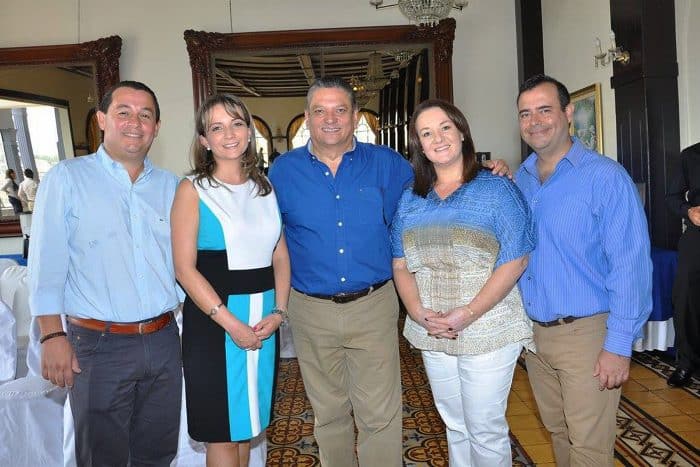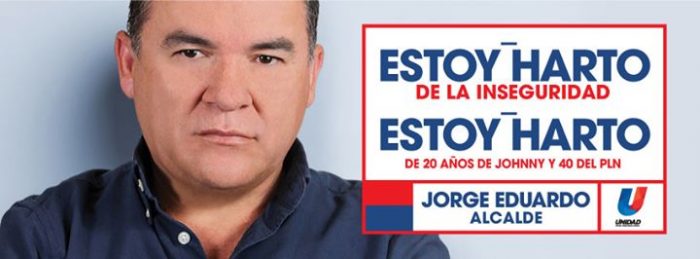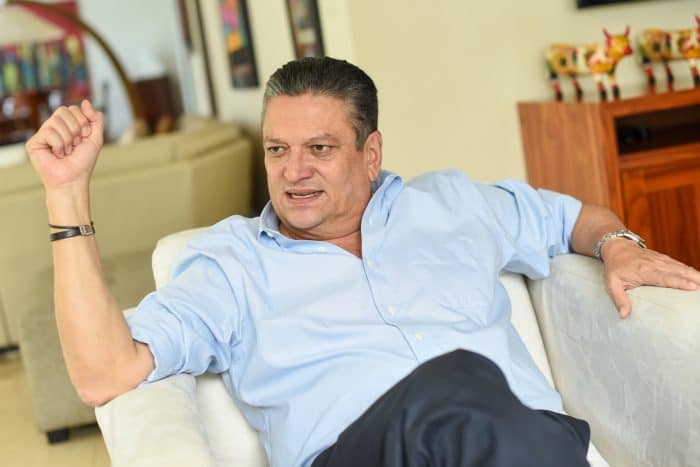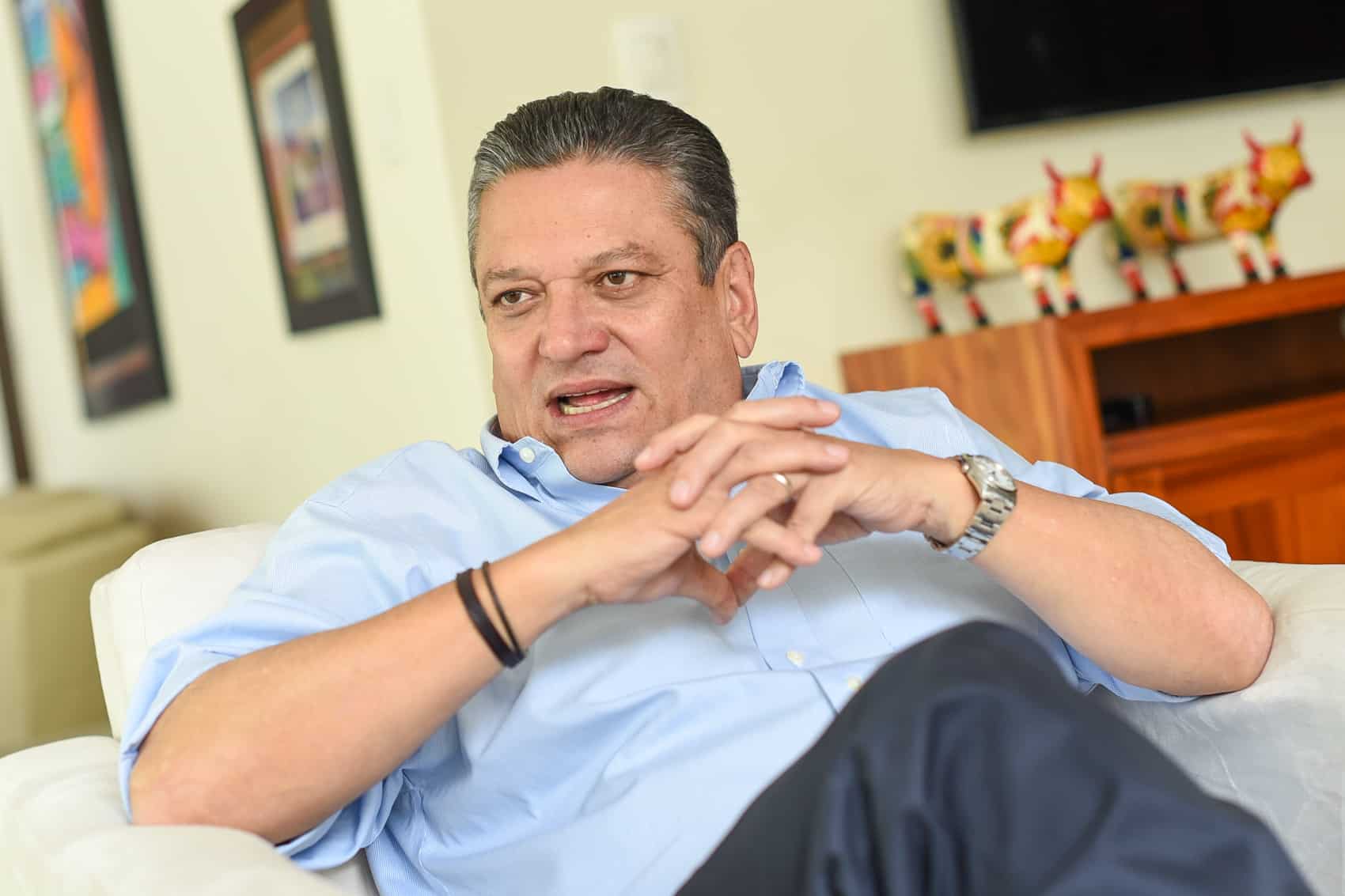The former mayor of San José, Johnny Araya Monge, who headed the municipality for 22 years, believes progress has stalled since he left office in 2013 to pursue a losing bid for the presidency the following year. He was overwhelmingly defeated in that race by current President Luis Guillermo Solís.
Araya, 58, believes he will win Sunday’s municipal election in Costa Rica’s capital despite having quit the 2014 presidential race ahead of a runoff vote, a decision that got him reprimanded by his own party, the then-ruling National Liberation Party. Solís’ victory with a staggering 78 percent of the national vote was the worst defeat in the history of the PLN in a national race.
Araya then resigned from his party after the PLN banned him from running for office for a period of four years. The next day, he received the nomination for San José mayoral candidate with another party, the little-known Alliance for San José (ASJ).
He will compete against 12 other candidates for the job.
The central canton of San José is the most populous one in the country, with 333,980 residents, of whom 229,306 are eligible to vote on Sunday. Participation in municipal elections in Costa Rica traditionally is much lower than in national elections.
See: Most Costa Ricans don’t vote in municipal elections. Will this year be different?
The official turnout in 2010’s San José mayoral race was barely 18 percent of eligible voters, according to the Supreme Elections Tribunal. A poll by the University of Costa Rica’s Center for Research and Policy Studies last September found that over 30 percent of voters said they will stay home on Feb. 7. A similar poll by CID-Gallup last October found that 55 percent of those surveyed said they do not plan to vote.
Araya leads among decided voters, despite the fact that he has switched parties.
In an interview with The Tico Times, the former mayor said he wants to return to the municipality to resume unfinished projects and propose new ones. Excerpts of the interview follow:
TT: What changed for you that led to the decision to face another election after dropping out of the last one?
JA: I don’t think anything has changed. I was a mayor for many years and I feel a great calling for being in that post. It’s a post that I’ve held with passion, with a lot of conviction. I look forward to resuming many projects to help San José, and mostly to bring back the leadership and authority the municipality lost in these past few years.
Following your resignation from PLN, there was talk that you could have been the candidate for up to four other parties. What influenced you to join the Alliance for San José Party?
I didn’t want to belong to a traditional party. I wanted to be part of an emerging group. I know the party’s president [José Zamora Cordero], who represented the party in the 2002 and 2006 elections. In 2010, the party decided not to nominate a candidate and support my re-election campaign, so the proximity to ASJ stems from years ago.
The party’s name even attracted me. It was born from the union of various groups, and that’s what I want, an alliance of various political and community groups working to improve San José.
One of those groups is formed by evangelical politicians. Did they make any special requests upon accepting you in the party?
Yes. The main interest of this faction of the party is the development of social projects. Paula Vargas, my candidate for vice mayor, has a big interest in participating in the development of our social programs.
In my past terms I formed a social council to address these issues, and I plan to form it again, because [current mayor] Sandra García removed that group.

Which segments of the population are priorities?
Our plans are to primarily address problems faced by children, the elderly, persons with disabilities, single mothers and the homeless.
How have the recent months of campaigning been?
This is my fourth campaign for mayor and the one with which I’ve felt most comfortable. The work has been very intense, but I’ve enjoyed it. I think we’ve done our job well, and we’ve managed to reach people because I’ve spent the most on shoes. Our main strategy has been walking and talking to the people in the streets and in their homes. We have walked on 70 tours to communities all over San José, and the door-to-door campaign has been very positive.
Many of your opponents have focused their campaigns on directly attacking you. How do you react to that?
It’s logical, and I see it as evidence that I’m leading in voters’ preferences. That’s why [other candidates] had to resort to disloyal strategies that turned the election into a very negative one – even dirty, I’d say.
I’ve managed to stay out of that confrontation, and I’m focused on conducting a clean campaign based on presenting our proposals. That’s what we will keep doing.
Some of your opponents say that during the 22 years you held office, the municipality of San José had zero progress, and that actually it moved backwards.
It seems to me that these criticisms aren’t supported by facts. The city of San José when I took office for the first time was complete chaos. Streets lacked proper signaling, there wasn’t a single square meter of pedestrian walkways, public parks were neglected and the city lacked urban planning. Los chapulines [street gangs] terrorized citizens all over the city. There were no social projects nor a cultural agenda of any kind.
After 20 years, the city went through a transformation. Parks and public spaces were renovated, and San José was declared Ibero-American Capital of Culture by the Union of Latin American Capital.
As the Bible says, “Ye shall know them by their fruits.”

Your opponents say those projects were mostly cosmetic.
We can summarize my work in several areas: We opened the two largest care centers in the country in Pavas and Hatillo. … That’s not a cosmetic project. The homeless center in downtown San José has been feeding over 100 people a day for the past seven years, and the centers for the elderly are doing a great job. Those aren’t cosmetic projects.
We hosted the Central American Games, which left a legacy of new or renovated public infrastructure for our citizens. That’s not cosmetic.
We developed several cultural programs and events that can’t be considered cosmetic either.
I know what they mean. I believe that even those projects they consider cosmetic, such as the Central Avenue boulevard, can’t be called that. That project represents interest in the people and shows a humanistic vision. I think that criticism is absolutely unfounded.
What about social development?
We built many social projects including day care centers, centers for the elderly, centers for the homeless. We launched the project to repopulate San José, among others. That is why I know people want me back. They feel the city has stagnated and actually has suffered a setback.
Do you still believe in repopulating the canton?
It’s a project that has brought many benefits. That project generated thousands of jobs, and created new revenues in taxes for the municipality. It also represents a boost for the economy of the city. Right here, in the surroundings of my home [in the western San José neighborhood of Rohrmoser], there are 12 housing projects that are precisely following that goal of repopulating the city.
There are 40-story apartment towers on Paseo Colón and similar ones open near La Sabana Park, and many similar projects are being built. All of them are linked to that idea that I promoted more than 10 years ago.
All of those housing projects target the upper class. Is that the focus of your repopulation plan?
No. My current plan establishes a policy to promote housing projects for low-income residents. It’s a big challenge that requires coordination with development firms, the Legislative Assembly and various public agencies.
We have a proposal to develop housing projects targeting middle- and lower-class sectors. One of them would be built on a property owned by the municipality, located behind the municipal building. It would require the approval of a decree to exempt the property from taxes, in order to begin construction.
My other major goal is to improve housing conditions for poorer communities, mostly informal settlements, as I believe the municipality can help improve conditions in many of these communities, and if necessary, relocate some of them.

San José is a highly polluted city. What do you propose to improve that?
I agree that there’s been a deterioration of garbage collection and cleaning services. I’ve always believed that the cleanest city isn’t the one that is cleaned the most, but rather the one that gets the least dirty. It’s a concept that implies that action is required by people to stop littering. However, the current situation of San José definitely requires more investment in cleaning and trash collection, and more equipment and more staff is needed because it is clear that the current administration cut resources in these areas.
In my time in office we had regular collection during the day and a group of garbage collectors called “the dawn team” that collected garbage and cleaned the city before dawn. That’s one of the projects eliminated by [current] Mayor [Sandra] García.
How would you resolve the proliferation of street vendors?
They turned downtown San José into chaos. I think that’s another proof of the loss of authority by current municipal officials. I don’t think the country’s unemployment problems should be resolved by handing out public spaces to street vendors.
I also believe there has to be a more effective action from the Municipal Police and the National Police to enforce people’s right to walk in public spaces, [which are] currently taken over by thousands of illegal vendors.
But proposing the total elimination of street vending is not a realistic goal. Even developed cities such as Madrid, Paris or New York have problems with street vendors, but it is mainly from people who keep moving on the streets, unlike San José where they have permanently taken sidewalks, boulevards and streets.
Do you attribute all these problems entirely to the administration of Mayor Sandra García?
Yes, I do. I think she has lacked leadership, she’s had serious disputes with employees in many departments at the municipality. I know that a survey among them will result in huge dissatisfaction with her work in office.
What do you think Mayor García stopped doing?
The roadway network in San José is destroyed and I’ve seen reports stating that the municipality last year left 68 percent of its budget for public roads unused.
The municipality in 2014 had a surplus of ₡17 billion ($31 million), of which ₡12 billion ($22 million) was unallocated. That represents almost a quarter of the total budget that is not being used, even though it is clear that there are many unresolved problems in San José. That’s why I say there is a setback. …
[García] was my running mate in the last mayoral election, but she has assumed an attitude of rejecting and disapproving everything related to me. This is evident in some of her decisions to close or limit support for many programs that I started, [such as] Transitarte, Chepe Joven, Hatillo’s Club House, Summer Concerts in La Sabana Park, the dawn garbage collection program and some others that were eliminated in what I think were wrong decisions that have negatively affected the city.
Solutions for unemployment require a multi-agency effort, so what would you propose from the municipality’s side?
I drafted a proposal to create municipal employment policies. One of the programs will be Rapi-Empleos, a job agency run by the municipality, offering opportunities for both skilled and unskilled workers.
We would make people available through a call center that would be promoted as a resource to hire permanent or temporary workers from gardeners, electricians or painters to caregivers for patients, call-center agents and others.
I also propose to exempt from permit payments businesses that qualify as strictly subsistence. This would benefit, for example, single mothers or people unable to work outside their homes because they must care for young children, elder relatives or people with disabilities.
They could start businesses at home to sell food, crafts or have a small salon in the living room. My plan will avoid the periodic payment of permits as well as the time they are forced to invest in procedures for obtaining a business permit. I intend to promote loan plans for small businesses, mostly negotiations with public banks to facilitate requirements for obtaining loans.
I also want to promote San José as an attractive city for service and high technology companies from abroad that are increasingly choosing the country for their operations in the region.
Do you think it is feasible to reach an agreement with current Transport Ministry officials to reorganize public transportation in the capital?
I can’t believe that the reorganization of bus routes drafted in 2000 has not yet been completed, but I think we can. I also have a good relationship with leaders of the Transportation Chamber.
We should promote more projects such as the mega bus terminal that opened recently in San José, so that buses depart and arrive outside downtown in order to avoid the large number of buses crowding the streets.
Do you still believe in a tram for San José?
Definitely. One of the first things I will do, once I get declared mayor-elect, is talk to President Solís and officials from the Public Works and Transport Ministry to explain the benefits of a tram, because I don’t think they fully understand it.
The tram project is supported by a feasibility study that cost more than $1 million, funded by the government of France. That study shows that a tram would improve the mobilization in the city and would renew the interest in public spaces in the capital.
Lack of public security is an ongoing problem. Is increasing the number of Municipal Police officers, as you propose, enough to improve security?
No, it isn’t. The Municipal Police must grow in number but also in training. I also think that we should increase the network of surveillance cameras that I started. The city currently has about 100, but most of them are downtown. One of my goals is that in four years the city will have at least 500 cameras, distributed around the canton’s 11 districts.
I also propose to improve the illumination of dark and unsafe areas of the capital. We are proposing a joint plan with the National Power and Light Company for that.
During your term there were controversies around your annual reports. How would you improve the transparency of your work if you are elected?
I think the best way to improve transparency is to improve the mechanisms for citizen participation and oversight.
The Mayor’s Office is overseen by the Internal Audit Department, but also by the Comptroller General’s Office. Despite that, I think it is not enough. I will promote citizen control measures, as I believe that all our work has to be open to the public.
What is an example of that?
Currently the government is promoting a policy of open government, and I believe municipalities should be examples of access to information, with online platforms for example. I think information regarding public spending and particularly public bids and contracts must be available to the public, because these are the most vulnerable to corruption.
Do you expect a high turnout on Sunday?
I think it will increase. The turnout in urban areas is usually higher than in rural areas, and I think it will remain like that. I believe people will participate more than in previous elections, but I believe that abstentionism will be high.






